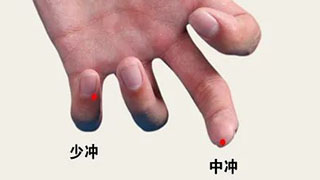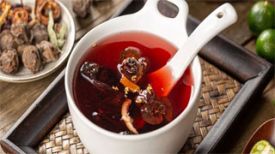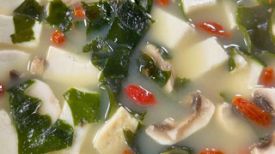
Before and after the White Dew solar term, the heat has not subsided, and there is still a lot of rain. The outside world is in a state of heat and humidity, especially in the southern region.
According to traditional Chinese medicine theory, heatstroke often occurs during the long summer solstice and early autumn seasons. At this time, the human body is in a state of deficiency of positive qi and excess of phlegm and fluids, and is also affected by the invasion of summer heat, leading to internal stagnation of heat pathogens and depletion of qi and fluid; Or due to the desire to escape the summer heat and cool down, it may lead to the suppression of yang, cold attack on the pores, damage to the central yang, loss of spleen health, and acute symptoms such as sudden collapse, sweating due to body heat, and pulse deficiency.
Therefore, although autumn has already entered the solar term, people still need to take into account the actual weather conditions, take good health measures, and beware of many discomforts in the body.
The diet should be light, and you can eat small meals multiple times
It is recommended to consume more vegetables that have sufficient water content or can clear heat and cool down, such as cucumbers, bitter gourd, tomatoes, loofah, lettuce, etc. For those with abnormal blood sugar, they can choose fruits that are suitable for consumption according to their own blood sugar situation, and carefully choose fruits with high sugar content, such as watermelon, pear, peach, melon, etc. Do not consume excessively spicy or stimulating food, and do not go on a diet.
Watermelon Cuiyi Maogen Drink
[Ingredients] 150g watermelon rind, 30g fresh grass roots, moderate amount of rock sugar
【 Method 】 Remove the blue crust and red flesh from the watermelon rind, chop the fresh roots, and put them together in a pot. Bring to a boil over high heat, then reduce the heat to low and cook for about 15 minutes. Add rock sugar and stir well before drinking.
【 Effect 】 Clearing heat and relieving summer heat, diuresis and quenching thirst. People with spleen and stomach deficiency cold and prone to diarrhea should use with caution.
Adequate hydration to prevent dehydration
While replenishing water, it is also necessary to supplement minerals. You can choose to drink light salt water or sports drinks. It is not recommended to drink alcoholic or high sugar drinks, as they not only fail to replenish water, but may also lead to further loss of water in the body. In addition, drinking a large amount of water before and after meals should be avoided to avoid affecting digestive system function.
Cassia seed chrysanthemum tea
【 Ingredients 】 9g cassia seeds, 6g white chrysanthemum, 10 jujubes
【 Method 】 Put the above ingredients into a cup, pour in boiling water, and soak for 10 minutes.
【 Effect 】 Clear liver and improve vision, clear heat and reduce fire. Due to the slightly cold medicinal properties of Cassia seed and Chrysanthemum morifolium, those with weak spleen and stomach and prone to diarrhea should use them with caution.
Ensure adequate sleep and avoid fatigue
After the White Dew, although the daytime gradually shortens and the nighttime gradually prolongs, overall it is still in a period of long daytime and short nighttime, and the human metabolism rate is relatively fast, so people often feel tired in autumn. At this point, it is still necessary to ensure sufficient rest time. The sleep schedule can gradually transition from "sleeping at night and waking up early" to "sleeping in early and waking up early".
According to traditional Chinese medicine theory, taking a big nap at midnight and a nap at noon is very beneficial to the body. It is recommended to take a nap between 11:00 and 13:00, with a nap time of about 30 minutes and not exceeding 1 hour.
Beating the pericardium meridian to relieve autumn sadness
Since ancient times, autumn has been filled with sadness and loneliness. "This is a line from the Tang Dynasty poet Liu Yuxi's" Autumn Poems ". There has always been a saying in Chinese folk culture about the sadness of autumn, with layers of autumn rain and layers of coolness, and the autumn wind and rain are melancholy. Tapping the pericardium meridian can alleviate autumn sadness appropriately.
The Hand Jueyin Pericardial Meridian originates from the chest and ends at the end of the middle finger, with a total of 9 acupoints from Tianchi point to Zhongchong point, which can be tapped sequentially.
Tianchi Cave
1 inch outside the nipple, located in the fourth intercostal space of the chest, 5 inches away from the anterior midline. This acupoint has the effects of soothing the liver and regulating qi, nourishing the heart and calming the mind, and can be used to improve symptoms such as chest tightness and cough.
Tianquan Cave
On the inner side of the upper arm, located 2 inches below the axillary crease, between the long and short heads of the biceps brachii muscle. This acupoint has the effect of widening the chest and regulating qi, and can be used to improve symptoms such as heartache, chest and rib distension.
Quze
The combined acupoint of the Hand Jueyin Pericardial Meridian. In the transverse crease of the elbow, at the ulnar edge of the biceps tendon. This acupoint has the effect of calming the heart and clearing heat, and can be used to improve symptoms such as heartache, palpitations, elbow and arm pain.
Qimen acupoint
On the palmar side of the forearm, when the line connecting Quze point and Daling point is 5 inches above the wrist crease, between the palmar longus tendon and the radial flexor tendon. This acupoint has the effect of clearing the heart and regulating qi, and can be used to improve symptoms such as heartache and palpitations.
Jianjiang acupoint
The acupoints of the Hand Jueyin Pericardial Meridian. On the palmar side of the forearm, when the line connecting Quze point and Daling point is 3 inches above the wrist crease, between the palmar longus tendon and the radial wrist flexor tendon. This acupoint has the effect of clearing the heart and relieving depression, and can be used to improve symptoms such as heartache, palpitations, and madness.
Neiguan acupoint
The acupoints of the Hand Jueyin Pericardial Meridian. On the palmar side of the forearm, when the line connecting Quze point and Daling point is 2 inches above the wrist crease, between the palmar longus tendon and the radial wrist flexor tendon. This acupoint has the effects of calming the heart and mind, soothing the liver and stomach, and can be used to improve symptoms such as heartache, palpitations, chest tightness, dizziness, insomnia, migraine, etc.
Daling Cave
The acupoint for transferring the Hand Jueyin Pericardial Meridian. At the midpoint of the wrist palmar crease, between the palmar longus tendon and the radial wrist flexor tendon. This acupoint has the effects of calming the heart and mind, widening the chest and stomach, and can be used to improve symptoms such as heartache, stomach pain, and wrist pain.
Laogong acupoint
The Xing acupoint of the Hand Jueyin Pericardial Meridian. At the center of the palm, when the second and third metacarpal bones are offset from the third metacarpal bone, when making a fist and bending the fingers, it is located at the fingertips of the middle and ring fingers. This acupoint has the effects of refreshing the mind, clearing the heart and calming the nerves, and can be used to improve symptoms such as heartache and vomiting.
Zhongchong acupoint
The well point of the Hand Jueyin Pericardial Meridian. Located on the finger, at the highest point at the end of the middle finger. This acupoint has the effects of opening the orifice, clearing the heart, and relieving heat, and can be used to improve symptoms such as restlessness and heartache.


